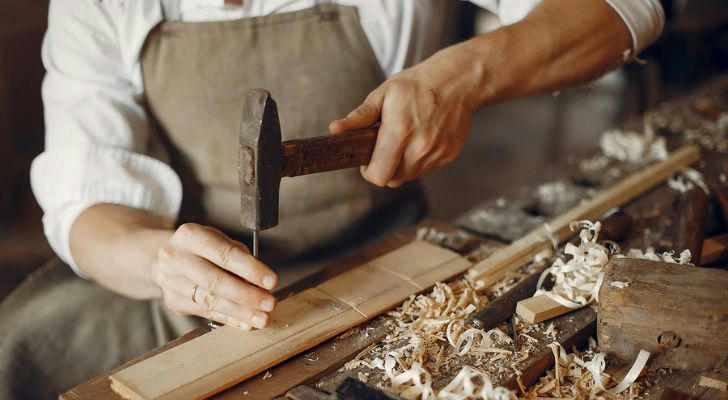From Novice to Pro: The Ultimate Guide to Mastering Woodworking and Building a Rewarding Career

Woodworking isn’t just a hobby—it’s a multi-billion-dollar superpower that turns ordinary people into furniture-making wizards and home renovation heroes. In a world of mass-produced junk, mastering woodcraft lets you create heirloom-quality pieces while potentially earning $50/hour or more. This guide will teach you how to swing a hammer like Thor, avoid rookie mistakes, and turn sawdust into gold.
Why Woodworking Skills Are Your Secret Weapon
1. The shocking demand for handmade quality
87% of homeowners prefer custom wood furniture over store-bought items (Forbes 2022). A single handcrafted dining table can sell for $3,000—15x the cost of materials.
2. Career opportunities you never imagined
- Furniture makers earn $35,000–$85,000 annually
- YouTube woodworkers pull in $10,000/month from ad revenue
- Custom cabinet installers charge $100+/hour
5 Essential Tools That’ll Make You a Woodshop Legend
1. The circular saw: Your portable lumber ninja
For $80, this tool cuts plywood like butter. Pro tip: Pair it with a guide rail for precision worthy of a NASA engineer.
2. Random orbital sander: The magic eraser
Turn rough planks into baby-smooth surfaces in minutes. Avoid cheap models—they’ll leave swirl marks worse than a toddler’s crayon art.
3. Pocket hole jig: The lazy genius’s best friend
Create strong joints without complicated math. Kreg’s $100 jig has built over 2 million DIY projects since 2020.

4. Chisels: Your surgical instruments
Sharper than a chef’s knife, these hand tools carve dovetails so tight they’re waterproof.
5. Dust collection system: Lung insurance
Wood dust causes 15% of craftsperson respiratory issues. A $200 shop vac could save you $10,000 in medical bills.
The 3-Step Woodworking Mastery Blueprint
Step 1: Start with “disposable” projects
Build simple boxes or shelves using cheap pine. Mess up? Burn it for campfire s’mores—no guilt!
Step 2: Master these 4 joint types
- Butt joint (easy)
- Dado joint (strong shelves)
- Dovetail (show-off worthy)
- Mortise and tenon (furniture-grade)
Step 3: Invest in measuring witchcraft
- Laser measures (accurate to 1/16")
- Digital angle finders
- Moisture meters ($50) to prevent warped wood disasters
How to Avoid 7 Deadly Woodworking Mistakes

Mistake 1: Skipping the “wood whisperer” step
Wood moves with humidity like a moody teenager. Always let lumber acclimate for 72 hours before cutting.
Mistake 2: Using dull blades
A worn blade causes kickbacks strong enough to launch wood across your garage. Replace blades after 8 hours of cutting.
Mistake 3: Ignoring grain direction
Cutting against the grain creates splinters sharper than a porcupine’s bad day.
Turning Sawdust into Cash: 5 Profit Paths

1. Custom furniture flipping
Buy ugly $50 dressers, transform them into shabby-chic masterpieces selling for $500.
2. YouTube tutorials
Film your builds—100,000 views = $500 in ad revenue.
3. Workshop classes
Charge $150/person for weekend “Build a Coffee Table” courses.
4. Contract work for interior designers
Top designers pay $1,500+ for custom shelving units.
5. Etsy empire
Handmade cutting boards sell for $80–$200 each. Produce 10/week = $50k/year.
Safety: Your #1 Priority (Unless You Like ER Visits)
1. PPE non-negotiables
- Safety glasses with side shields
- Hearing protection (85 dB+ tools cause permanent damage)
- Respirator mask (N95 minimum)
2. Shop layout rules
- Keep fire extinguishers every 20 feet
- Clear floor space = 3x your height
- Never position tools facing walkways
Conclusion: Your Saw Awaits
Woodworking isn’t just about making things—it’s about creating legacies. Whether you’re building a $10 birdhouse or a $10,000 conference table, every cut teaches patience and precision. Follow this guide, respect your tools, and soon you’ll be the neighborhood’s most sought-after craftsperson. Remember: In a world of plastic and particle board, real wood is royalty—and you’re its master builder.
